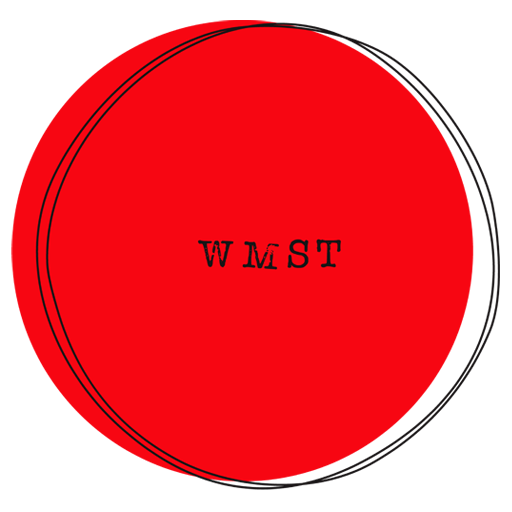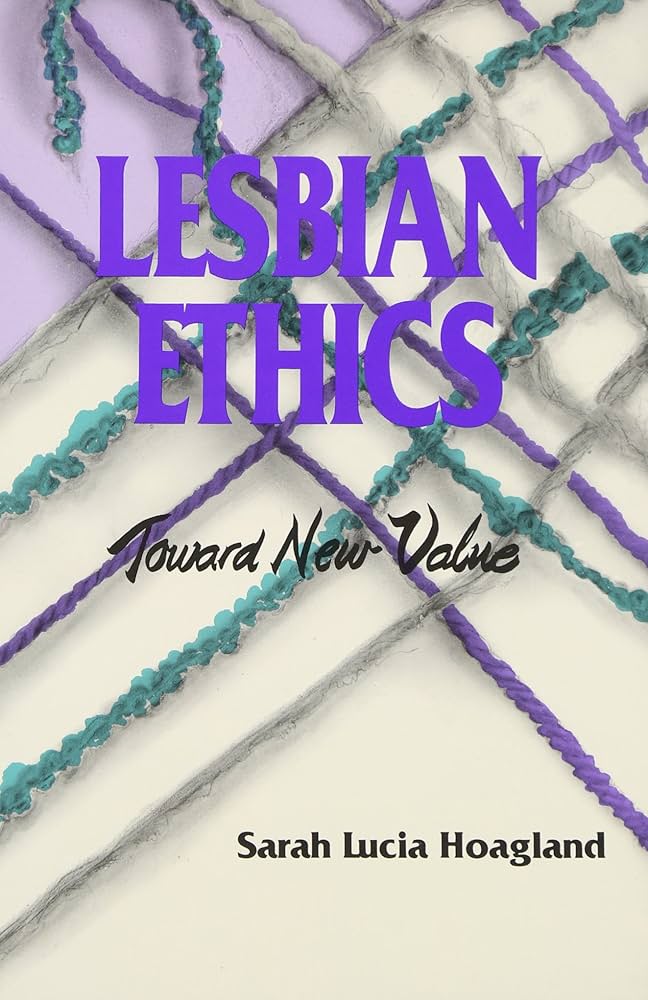Sapphic Circle: two Sundays a month, 12pm PT/3pm ET/7pm UTC
Sapphic Circle is a space for lesbians to come together for thoughtful discussions on a variety of topics. We seek to build lesbian community through engaging in lesbian ideas, politics, media, and more!
Integrity And Agency
In a recent Sapphic Circle on Lesbianism as Anti-Domination, our discussion turned more contemplative, so this week, we're going to be discussing some writing by a lesbian feminist philosopher. Sarah Lucia Hoagland is an influential author that we've touched on before, when we had our Separatism discussion. Please open this short PDF to read a subsection of Chapter 6, 'Moral Revolution: From Antagonism to Cooperation', from her 1988 book, Lesbian Ethics.
Lesbian Ethics
Here's a brief excerpt from the Introduction of the book, where we can get a bit more context about how Sara Lucia Hoagland defintes and understands "lesbian ethics".
When I think about ethics, I think about individuals making choices, that is, making judgments and acting. I think about our ability to interact, to connect, to be intimate, to respond. I think about our ability to perceive and judge, our ability to gain and attend information. I think about constraints on our choices, limits on our options. I think about transformations we undergo as a result of our choices—how we grow and change. I think about our ability to create lesbian meaning. When I think about ethics, I think about choice under oppression, and I think about lesbian moral agency.
What I am calling Lesbian Ethics focuses on enabling and developing individual integrity and agency in relation to others. I mean to invoke a self who is both separate and related, a self which is neither autonomous nor dissolved: a self in community who is one among many, what I call autokoenony (ô' to kén 0' né).
Glossary: Language From The Reading
Agency
"While we don’t control situations, we do affect them. In focusing on choice and moral agency, I mean to invoke lesbian ability to engage, to act in situations — that we move here now makes a difference. And I mean to suggest that whatever limits we face, our power —ability and agency —lies in choice" (pg. 13).
Autokoenony
"I mean to invoke a self who is both separate and connected. So I create a word for what I mean: ‘autokoenony’ (ô' to kén 0' né) which I take from the greek ‘auto’ (“self”) and ‘koinonia’ (“community, or any group whose members have something in common”).” What I mean by ‘autokoenony is “the self in community.” The self in community involves each of us making choices; it involves each of us having a self-conscious sense of ourselves as moral agents in a community of other self-conscious moral agents. And this is not a matter of us controlling our environment but rather of our acting within it and being a part of it" (pg. 145).
"Cooperation"
"The modern tradition in anglo-european ethics starts with egoistic strangers and then works to devise a set of values that will get them to “cooperate.” Its focus is regulation or conformity and coercion (“cooperation”)" (pg. 285).
Cooperation
"When we are centrally lesbian, our actions spin around, and so hold in place, a foundation, not of antagonism, but of a form of cooperation. This is not a cooperation that we can directly choose or pursue or force. It is a cooperation which flowers through the choices we make, as we engage, acting one among many, autokoenonously. My suggestion is that this cooperation emerges as a foundation (axis) of our actions when we focus on our own and each other’s integrity and agency" (pg. 292).
Integrity
"The concept of ‘integrity’ is problematic, for one meaning of ‘integrity’ is “a rigid adherence to a code of behavior.” This is not what I invoke when I talk of integrity. I invoke, rather, a concept of wholeness. Janice Raymond argues that ‘integrity’ means a whole “from which no part can be taken" (pg. 286).
Morality
"I have always regarded morality, ideally, as a system whose aim is, not to control individuals, but to make possible, to encourage and enable, individual development" (pg. 285).
Responsibility
"‘Responsibility’, like ‘accountability’, encourages a one-way process—she’s responsible to me; I’m responsible to her. As Maria Lugones notes, responsibility encourages us to act to stay in charge. It is one of the ways we manage to keep (some) control over each other" (pg. 288).
Responsiveness
"Responsiveness is the ability to acknowledge each other, to listen to, argue with, criticize, play with, get angry at, joke with, befriend, celebrate—in short, to engage" (pg. 288).
Questions To Consider
- What do you think lesbians can do to "encourage or enable self-development" on an individual level, after this reading?
- Upon reading Hoagland's distinction between "responsibility" and "responsiveness," can you think of any situations among women in your life, where "responsibility" might be better replaced with "responsiveness"?
- How does Hoagland's statement: "As I suggested in the introduction, lesbian community is a context. It makes possible and is created by lesbians engaging and networking. It has been a context in which to grow, a context in which to assuage wounds and heal, to create and develop possibility," make you feel about the future of lesbian community?
- What are your thoughts about Hoagland's conclusion, that if we're looking for rules to follow, we will stifle personal and communal growth, and we should instead prioritize engaging authentically and making choices, as this creates new foundations for continuous cooperation?
References
Hoagland, S. L. (1988). Lesbian ethics: Toward new value. Institute of Lesbian Studies.
FAQs & Code of Participation
If you have questions, please read over Sapphic Circle's Frequently Asked Questions and review our Feminist Code Of Participation.





